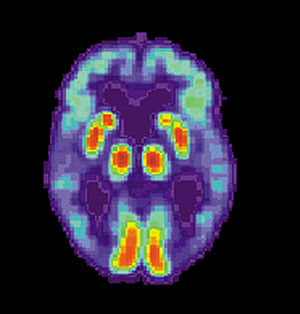Researchers at Lund University have discovered a new function for vitamin C. Treatment with vitamin C can dissolve the toxic protein aggregates that build up in the brain in Alzheimer’s disease.
The research findings are now being presented in the Journal of Biological Chemistry.
The brains of people with Alzheimer’s disease contain lumps of so-called amyloid plaques which consist of misfolded protein aggregates. They cause nerve cell death in the brain and the first nerves to be attacked are the ones in the brain’s memory centre.
“When we treated brain tissue from mice suffering from Alzheimer’s disease with vitamin C, we could see that the toxic protein aggregates were dissolved. Our results show a previously unknown model for how vitamin C affects the amyloid plaques,” says Katrin Mani, reader in Molecular Medicine at Lund University.
“Another interesting finding is that the useful vitamin C does not need to come from fresh fruit. In our experiments, we show that the vitamin C can also be absorbed in larger quantities in the form of dehydroascorbic acid from juice that has been kept overnight in a refrigerator, for example.”
Bookmark this page for “Vitamin C” and check back regularly as these articles update on a very frequent basis. The view is set to “news”. Try clicking on “video” and “2” for more articles.








